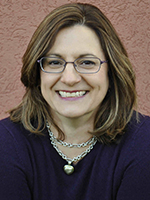Previous Writer to Writer Mentees

Lisa Henner
Spring 2015 Session
Lisa Henner prepared to write fiction by working as a hotel desk clerk, a hog futures trader, an English teacher, a wealth manager, and an organic chicken farmer, and by raising two children. Originally from Chicago, Lisa now makes her home in Viroqua, Wisconsin, where she co-founded the Driftless Writing Center. She received her bachelor’s degree from Washington University in St. Louis.
Lisa worked with writer Mike Harvkey.
What were your goals for this program, and how did you communicate them to your mentor?
My goal was to become a better writer. I sought a work-driven experience to help me with focus and energy, and an opportunity to learn from conversation about aspects of craft and my own work. My mentor and I had a “get to know you” call at the outset of the program. I had created a set of questions, and my mentor was happy to allow me to drive the discussion. This set a tone for the remainder of the modules.
How would you describe the matching process and how well matched you were with your mentor?
Alchemical. I was amazed and delighted that my mentor and I had so much in common as writers and readers. We appreciate the same stories and the same types of stories. We both concentrate on nuanced characters—whether they are pleasing to others or not.
Was there a specific time you felt that you and your mentor "clicked"?
I felt like it clicked before we even had any personal contact. The central theme of my mentor’s book is provocative, and his style is spare and vigorous. I welcomed the opportunity to work with a writer who engages in the larger conversation. When we had our first phone conversation, I felt like I was rediscovering an old friend—maybe the kid from my comp lit class in college with whom I had intense philosophical debates over coffee after class.
What advice do you have for people entering the program next?
The goal-setting piece is vital, but give the conversation the opportunity to wander. Complete each module just to see where it leads. Be open to learning; be fearless in expressing your ideas.
What is something you learned from your mentor or this process?
Discussion with my mentor and interaction with other mentees allowed me to understand that my experience, business, and family create vitality in my work rather than drain it away. My mentor is trained in the martial arts, and this lens allowed for distinctive conversation about focus and practice.
What is something that happened during the session that you did not expect?
I did not expect to feel like a peer to my mentor. The process felt more like an exchange, even though my mentor answered my questions, gave advice on my work, explained aspects of craft, and suggested readings to enrich my writing. I came away with a sense that this is hard work and we’re all in it together rather than instructed.
In what ways did this experience differ from, say, taking a creative writing class or workshop? The Writer to Writer program is individualized. In a group setting, there is often a general agenda that either skips what I need or dwells on areas where I feel competent.
How has this experience helped your writing or work process?
I feel more in control of my time, my process, my psychology even. I learned that most writers feel a pressure of juggling tasks and that many of us take a long time to produce. Long-form fiction in particular takes chunks of time and also a span of years. The program came during my busy season for work; instead of taking two months off from my writing, I kept my creative life alive. This energy has persisted long past the end of the program.
Where will you and your mentor go from here, following the formal conclusion of the program?
We both have a goal to finish a draft of our novels by year-end. We have made a pact to keep one another accountable and check in regularly. The conversation will continue
.
